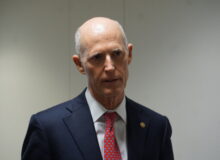By Quin Hillyer at PJ Media;
[Sunday was] Pentecost, the day of the coming of the Holy Spirit, through the disciples, to the church in the whole world. Those who listened to the disciples said this:
And how is it that we hear, each of us in his own native language?
καὶ πῶς ἡμεῖς ἀκούομεν ἕκαστος τῇ ἰδίᾳ διαλέκτῳ ἡμῶν ἐν ᾗ ἐγεννήθημεν,
¿Cómo es que cada uno de nosotros los oímos hablar en nuestra lengua en la que hemos nacido?
Et comment les entendons-nous, chacun dans son propre langage, celui du pays dans lequel nous sommes nes?
Как же мы слышим каждый собственное наречие, в котором родились.
Huru kommer det då till, att var och en av oss hör sitt eget modersmål talas?
Imekuwaje, basi, kwamba kila mmoja wetu anawasikia wakisema kwa lugha yake mwenyewe?
Wie hören wir denn ein jeglicher seine Sprache, darin wir geboren sind?
Come adunque li udiam noi parlare ciascuno nel nostro proprio natio linguaggio?
Un kā mēs ikviens dzirdējām savu valodu, kurā mēs dzimuši?
Tai kaipgi mes kiekvienas juos girdime savo gimtąja kalba?!
Hvorledes går det da til at vi alle hører vårt eget mål, som vi er født i,
This could have been a problem. All of us have heard of intended meanings being “lost in translation,” sometimes to harmful effects….
[Later in the column]….
Pentecost is so remarkable. Nothing was lost, or harmed, in translation. What the Pentecost story tells is of messages heard crystal-clear, and entirely accurately, when translated into just about every language known to the first century A.D. Mediterranean world.
This was a translation that enlightened, rather than confused. It saved, rather than frustrated.

And what, exactly, was the message? As Peter told those congregated there, it was two-fold: first, that God’s Spirit was now wonderfully let loose into the world; and second, that “everyone who calls on the name of the Lord shall be saved.”
In Corinthians, Paul explained what we are to do with the Spirit: We are to accept its gifts and use them for the greater good, whatever those gifts are. (Some are gifted with wisdom, some with healing, some with faith, and so on.) In other words, the Spirit is a gift, but it also is a commission of responsibility upon us. We receive God’s love, and the news of the salvation he offers – and we are to “pay it forward,” to pass it on, to let the Spirit use us as vessels in and through which the love is presented and provided to others….
[The full column is here, including a personal example from an experience involving, of all things, baseball.]






